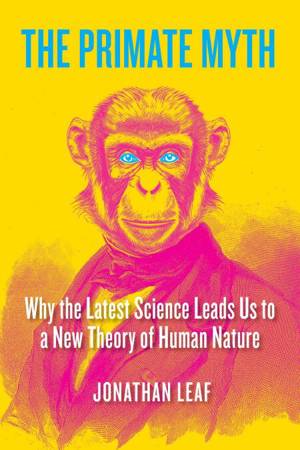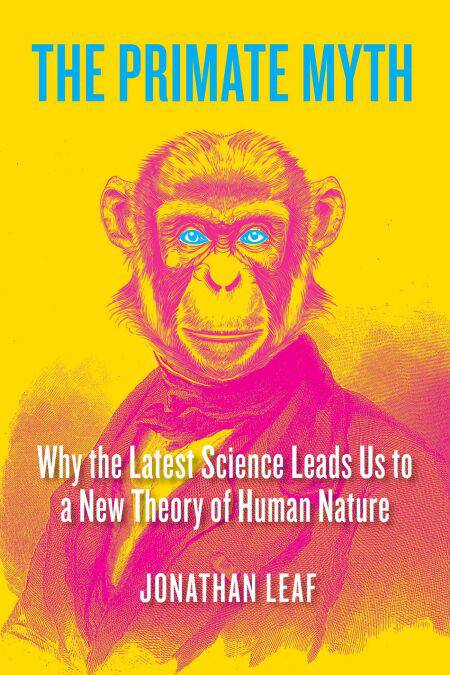
Je cadeautjes zeker op tijd in huis hebben voor de feestdagen? Kom langs in onze winkels en vind het perfecte geschenk!
- Afhalen na 1 uur in een winkel met voorraad
- Gratis thuislevering in België vanaf € 30
- Ruim aanbod met 7 miljoen producten
Je cadeautjes zeker op tijd in huis hebben voor de feestdagen? Kom langs in onze winkels en vind het perfecte geschenk!
- Afhalen na 1 uur in een winkel met voorraad
- Gratis thuislevering in België vanaf € 30
- Ruim aanbod met 7 miljoen producten
Zoeken
The Primate Myth E-BOOK
Why the Latest Science Leads Us to a New Theory of Human Nature
Jonathan Leaf
E-book | Engels
€ 16,76
+ 16 punten
Uitvoering
Omschrijving
Challenging everything we thought we knew, this book takes a revolutionary look at how humans are far less like other primates than we’ve been led to believe—and uncovers what truly sets us apart.
Humans are primates, much like chimps—or so we’ve been continually told. Yet recent discoveries show that our species has a different brain design, function, and chemistry; different eating, sleeping, mating, and rearing patterns; a different metabolism; and a different physiology than apes. Nor is our behavior much like theirs, and we don’t even have the feet made for climbing trees that define the primate order.
Could it be that conceiving of ourselves as primates isn’t helping us understand what it is to be human? By examining the latest research in neuroscience and genetics, we are propelled toward a radically different conception of our nature. In this way, we can begin to grasp the distinctively human dimensions of war, murder, suicide, and homosexuality, along with our fascinations with subjects like sports, politics, and fashion. Here is the path by which to understand our species’ essential problems and uncover the answers for how we should live our lives.
Humans are primates, much like chimps—or so we’ve been continually told. Yet recent discoveries show that our species has a different brain design, function, and chemistry; different eating, sleeping, mating, and rearing patterns; a different metabolism; and a different physiology than apes. Nor is our behavior much like theirs, and we don’t even have the feet made for climbing trees that define the primate order.
Could it be that conceiving of ourselves as primates isn’t helping us understand what it is to be human? By examining the latest research in neuroscience and genetics, we are propelled toward a radically different conception of our nature. In this way, we can begin to grasp the distinctively human dimensions of war, murder, suicide, and homosexuality, along with our fascinations with subjects like sports, politics, and fashion. Here is the path by which to understand our species’ essential problems and uncover the answers for how we should live our lives.
Specificaties
Betrokkenen
- Auteur(s):
- Uitgeverij:
Inhoud
- Aantal bladzijden:
- 352
- Taal:
- Engels
Eigenschappen
- Productcode (EAN):
- 9798895650783
- Verschijningsdatum:
- 20/10/2025
- Uitvoering:
- E-book
- Beveiligd met:
- Adobe DRM
- Formaat:
- ePub

Alleen bij Standaard Boekhandel
+ 16 punten op je klantenkaart van Standaard Boekhandel
Beoordelingen
We publiceren alleen reviews die voldoen aan de voorwaarden voor reviews. Bekijk onze voorwaarden voor reviews.









